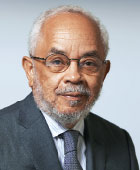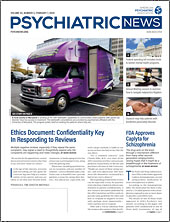Forensic psychiatrists have long been discussing the complex task of carrying out a forensic evaluation and testifying about the results. I contributed to a conversation about this subject in a workshop at the October 2019 annual meeting of the American Academy of Psychiatry and the Law. The moderator, Dr. Sarah Baker of the University of Texas Southwestern Medical School and two discussants (Dr. Philip Candilis of the George Washington University School of Medicine and Dr. Michael Norko of the Yale School of Medicine) focused on integrating empathy and compassion into forensic evaluation and testimony.
At the outset, Baker framed several questions for our consideration: May an evaluator be said to employ too much empathy or compassion in forensic psychiatry evaluations? Does empathy or compassion add value to the examination? Do those elements pollute the evaluation and compromise forensic psychiatrists’ pursuit of objectivity and truth seeking in their work? Besides the problem of potential interference with objectivity, some practitioners worry that empathy and compassion may mislead evaluees into thinking that the evaluator is there as an advocate for those being examined.
Conventional definitions of “empathy” and “compassion” were discussed. For empathy, the “spontaneous feeling of identity with someone who suffers” and “walking in someone’s shoes” sufficed. For compassion, there were “kindness,” “respect for persons,” and “altruism” as helpful explanatory terminology. Two statements emerged clearly from the presentations. Regardless of the approach of forensic psychiatrists to the tasks of evaluation and testimony, evaluees must be allowed to present their concerns and versions of events. In addition, forensic psychiatrists must reflect patiently on managing the integration of empathy and compassion into the work and remain sensitive to potential problems caused by overidentification with evaluees.
In my presentation, I focused on “dignity” as an alternative term to empathy and compassion. Scholars see “dignity” as two-pronged. On the one hand, it refers to the concept of an internal “essential and inviolable humanity,” often called “humanitas.” Then there is the dignity imputed to us, referring to our wisdom, rank, and position. This is commonly called “dignitas.” The ultimate point here was that dignity should be employed thoughtfully in the work of forensic psychiatrists as we strive to treat evaluees with dignity.
During the evaluation, for example, how and when does the forensic specialist bring into play considerations of dignity? An artistic exposition recently provided me some insight into this problem. The exhibition took place at the Yale Center for British Art and featured painter Lynette Yiadom-Boakye, who was born in London to Ghanaian parents. Program notes discussed Yiadom-Boakye’s objective of making portraits of people of color without their “being considered symbols of pain, suffering, or triumph.” In forensic psychiatry, we represent those symbols as we explore the stories of those we evaluate. In addition, this artist talks of stripping “her work of complicated narratives in favor of what the body expresses in stillness, or in action. …” Consequently, Yiadom-Boakye’s paintings present individuals who are “alive with presence and thought.” The observer can then see how the models, real or imagined, “display assurance of minds and bodies that are self-contained and exist on their own terms.”
This, to my mind, is an effort to recognize inherent dignity in the artist’s model. Still, it is important that we note that building complex narratives about our evaluees is central to our evaluations and should not be forgotten. Can we structure our narratives about our subjects on a foundational core of humanitas?
The artist’s portraits emphasize the human dimension of people in a visual field of stillness or limited action. I believe this idea comes into play, too, at the beginning of the contact between evaluator and evaluee in forensic work, free for the moment of all ideological concerns. The model reflects the “essential and inviolable” essence we seek to recognize. We must be calm and patient in seeking the quiet dignity before moving to characterize and bear witness to the complex narrative of the evaluee. ■

